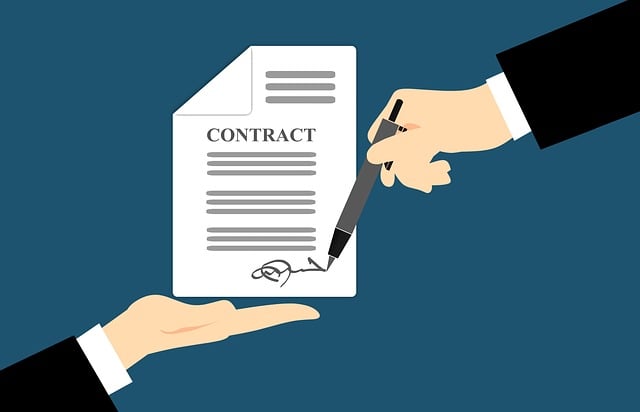Navigating international trade requires professional UK Supplier and Vendor Contracts translation services to prevent legal issues, disputes, and misinterpretations across borders. These specialized services go beyond word-for-word translations, incorporating cultural nuances, local business practices, and legal terminology to ensure contractual enforceability and compliance with target market regulations. By leveraging experienced translators, UK-based companies can maintain clear communication, foster robust international partnerships, and mitigate risks associated with global business collaborations involving unique UK legal terminology and practices.
“In today’s globalized economy, navigating international trade contracts is paramount for businesses entering foreign markets. This article guides you through the intricate process of translating UK supplier and vendor contracts for seamless global market entry. We explore the complexities of international agreements, highlighting the critical role professional translation plays in ensuring accuracy and legal compliance. From understanding cultural nuances to best practices for contract management, discover key elements to consider, enabling you to confidently manage diverse supplier relationships worldwide.”
- Understanding the Complexities of International Trade Contracts
- The Role of Professional Translation in UK Supplier Agreements
- Key Elements to Consider in Supplier Terms and Service Agreements
- Navigating Cultural Differences in Contract Language
- Ensuring Accuracy and Legal Compliance through Expert Translators
- Best Practices for Global Market Entry with Translated Contracts
Understanding the Complexities of International Trade Contracts

Navigating international trade involves a deep understanding of legal complexities, especially when it comes to supplier and vendor contracts. These agreements are often drafted in one language and need to be translated for global markets, requiring precision to avoid misinterpretation. Inaccurate translations can lead to misunderstandings, disputes, and even legal issues across borders, particularly in the UK where contract law varies from other jurisdictions.
Professional translation services tailored for UK supplier and vendor contracts are essential to ensure compliance with local regulations while facilitating smooth business operations globally. Such services don’t just translate words; they localize agreements by considering cultural nuances, business practices, and specific legal terminology unique to each market. This ensures that the translated contract is legally binding and enforceable in its target territory.
The Role of Professional Translation in UK Supplier Agreements

In the global business landscape, where companies operate across borders, ensuring clear communication is paramount. This is especially true for UK supplier and vendor contracts, which often involve intricate legal terms and conditions. Professional translation services play a pivotal role in facilitating seamless understanding between international partners.
When it comes to translating these agreements, accuracy and cultural relevance are key. Skilled translators with expertise in UK legal terminology and business practices can navigate the complexities of these documents, ensuring that every clause is precisely conveyed in the target language. This meticulous approach not only minimizes the risk of misinterpretation but also helps maintain the integrity of the original intent, fostering stronger relationships between UK suppliers and their global counterparts.
Key Elements to Consider in Supplier Terms and Service Agreements

When translating supplier terms and service agreements for global markets, especially in the UK, several key elements demand meticulous attention. These contracts are often complex, containing legal jargon and specific industry terminology that require specialist knowledge to ensure accurate transmission of intent across languages. Professional translation services for UK supplier and vendor contracts should not only focus on word-for-word equivalent translations but also grasp the nuances and cultural implications inherent in business agreements.
Key considerations include clarity in defining responsibilities, service levels, pricing structures, intellectual property rights, dispute resolution mechanisms, and confidentiality clauses. Each of these components plays a critical role in establishing a robust foundation for the supplier-vendor relationship. Inaccurate or incomplete translations could lead to misunderstandings, contractual disputes, or even legal complications, emphasizing the importance of engaging experienced translators who can navigate these intricacies seamlessly.
Navigating Cultural Differences in Contract Language

Navigating cultural differences is a critical aspect of international business, especially when it comes to legal agreements like supplier terms and service contracts. For UK-based companies doing global business, ensuring that contracts are accurately translated is essential. Cultural nuances can significantly impact contract language, with terms having different meanings across jurisdictions. What’s considered a standard clause in one country might be unfamiliar or require specific phrasing in another.
Professional translation services for supplier and vendor contracts play a vital role in overcoming these challenges. They employ linguists who understand both the source and target cultures, ensuring that legal concepts are conveyed precisely and avoiding potential misunderstandings. Accurate translations help foster strong business relationships by demonstrating respect for local customs and legal frameworks, thereby facilitating smoother operations in diverse global markets.
Ensuring Accuracy and Legal Compliance through Expert Translators

When translating supplier terms and service agreements for global markets, ensuring accuracy and legal compliance is paramount. Trusting a professional UK supplier and vendor contracts translation service is essential to avoid costly misunderstandings or legal issues. Expert translators with specialized knowledge in both business and legal terminology can capture the nuances of your documents accurately, reflecting the original intent while adhering to local laws and regulations.
These professionals are well-versed in cultural differences and linguistic subtleties, ensuring that your agreements are not just words on paper but effective, legally sound contracts. They employ advanced translation tools and methods, including machine translations refined by human experts, to deliver high-quality, consistent results. This meticulous approach safeguards your interests, fostering strong relationships with international partners based on clear, precise communication.
Best Practices for Global Market Entry with Translated Contracts

When entering new global markets, especially in regions like the UK, where legal frameworks differ significantly from your home market, translating supplier and vendor contracts is non-negotiable. It’s a crucial step to ensure compliance and mitigate risks associated with contractual obligations. Professional translation services specializing in UK legal terminology are essential for accuracy. These experts can navigate complex legal concepts, ensuring that translated contracts align perfectly with local regulations.
Best practices involve engaging qualified translators who have experience with international business contracts. They should possess a deep understanding of both the source and target languages, as well as knowledge of the industries involved. Additionally, using standardized contract templates tailored to global markets can simplify the translation process, maintain consistency across agreements, and reduce potential errors or ambiguities.
When entering global markets, navigating complex international trade contracts is essential. Professional translation services for UK supplier and vendor contracts are pivotal in ensuring accuracy, legal compliance, and successful market entry. By carefully considering cultural differences in contract language, leveraging expert translators, and adopting best practices, businesses can streamline the process and establish solid foundations for international partnerships. This comprehensive approach allows companies to confidently expand their global reach while mitigating potential risks associated with language barriers.



